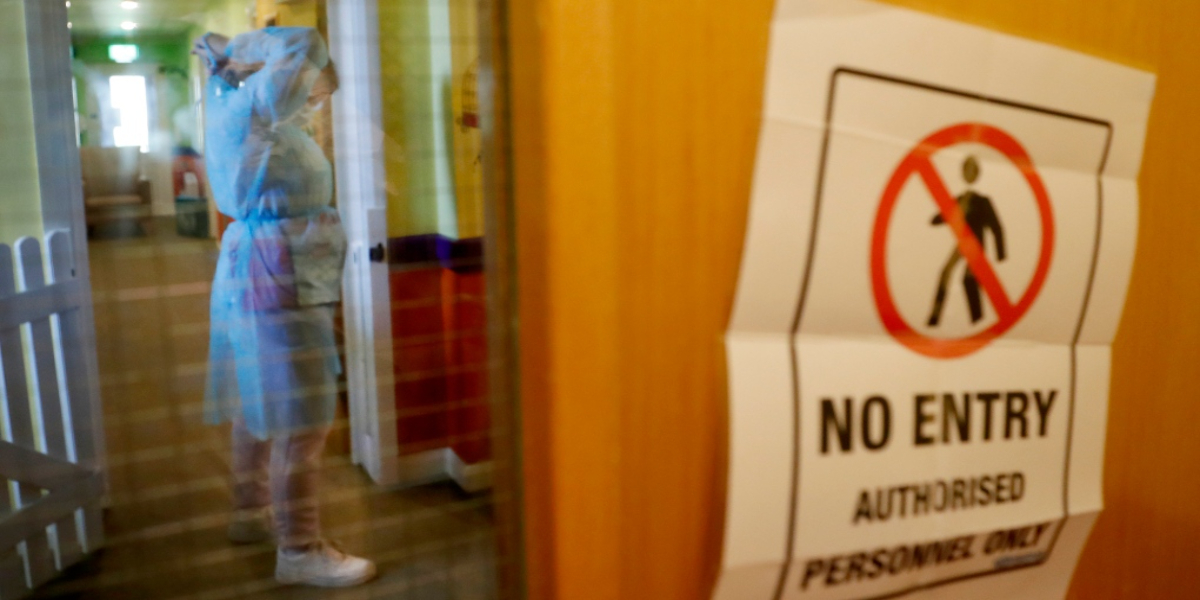A British court found on Wednesday that the Conservative administration violated the law when it discharged hospital patients into nursing homes without testing or isolating them for COVID-19, resulting in thousands of fatalities early in the pandemic. Two High Court justices ruled in March and April 2020 that the policy was illegal because it failed to account for the infectious risk that non-symptomatic virus carriers posed to aged or vulnerable persons.
The court ruled that UK officials failed to consider the “increasing understanding” that the virus may be spread by persons with no symptoms, which had been highlighted as a concern as early as late January 2020. They said that the UK government should have recommended that discharged hospital patients be separated from other nursing home residents for 14 days, which did not occur during the early weeks of the country’s epidemic.
Approximately 20,000 individuals died as a result of the virus in British nursing homes during the first months of the country’s first epidemic in 2020. The decision came in response to a complaint filed by two women whose dads died as the illness spread through their houses. Their attorneys called the decision, which allowed COVID-19 to spread among the elderly and defenseless, “one of the most egregious and terrible policy errors in contemporary history.”
Some of the lawsuit’s grounds were supported by the judges, however, allegations filed under human rights legislation and against the National Health Service were denied. British Prime Minister Boris Johnson said the verdict would be studied and responded to “in due course.” He stated that officials were forced to make difficult judgments during an “extremely difficult moment” when “we didn’t know too much about the disease.”
“What we didn’t know was that COVID could be transmitted asymptomatically in the way that it was,” Johnson stated in the House of Commons. “Of course, I want to express my heartfelt condolences and sympathy to everyone who lost loved ones during the epidemic, especially those who lost loved ones in nursing homes,” he continued.
When the pandemic began, the United Kingdom, like many other nations, had the ability to screen for coronavirus, and many asymptomatic patients were swiftly discharged from hospitals and placed in care homes, where COVID-19 quickly spread. Matt Hancock, the health secretary at the time, has stated that the government did all possible to keep people safe during the worst public health crisis in decades.
According to Hancock’s office, the court judgment exonerated him of misconduct and deemed him to have “behaved properly on all issues.” It stated that Hancock, who resigned from the government this year for violating pandemic social-distancing guidelines by having an affair while living with his wife, wishes health officials had notified him about asymptomatic transmission sooner.
Claimant Cathy Gardner, whose father died in April 2020, stated that “the government ignored and let down my father and other residents in care homes. “Matt Hancock’s assertion that the government erected a protective ring around care homes during the first wave of the epidemic was nothing more than a terrible falsehood for which he should be ashamed and apologized,” Gardner said.
Johnson has established an impartial public inquiry investigating Britain’s response to the epidemic, which has yet to begin. More than 174,000 individuals have died in the United Kingdom after testing positive for the virus, making it the second-highest toll in Europe behind Russia.
The verdict “confirms what individuals living in care and their families have known all along – the protective ring was non-existent,” said Helen Wildbore, director of the Relatives and Residents Association charity.
“The ruling is a wonderful first step toward justice,” she said, “but grieving families will be left wondering why more wasn’t done to safeguard their loved ones and how many lives may have been spared.”

















